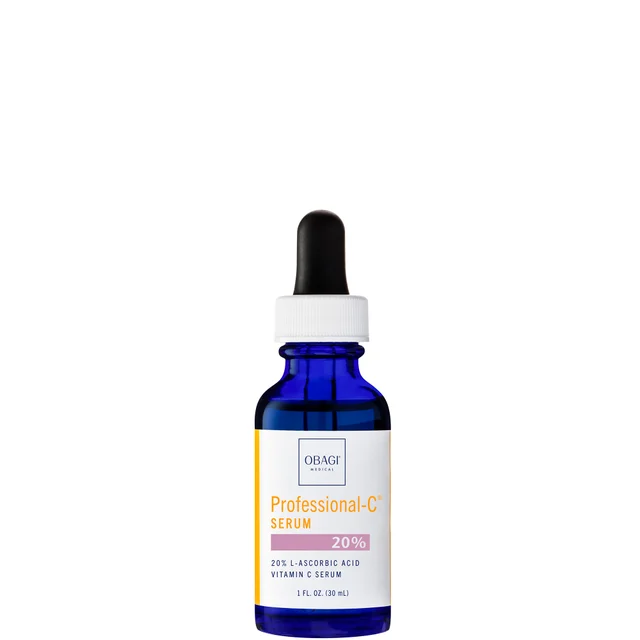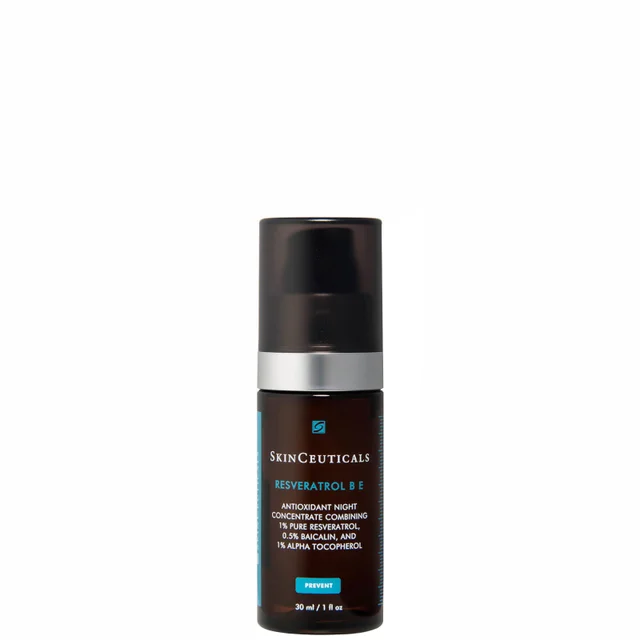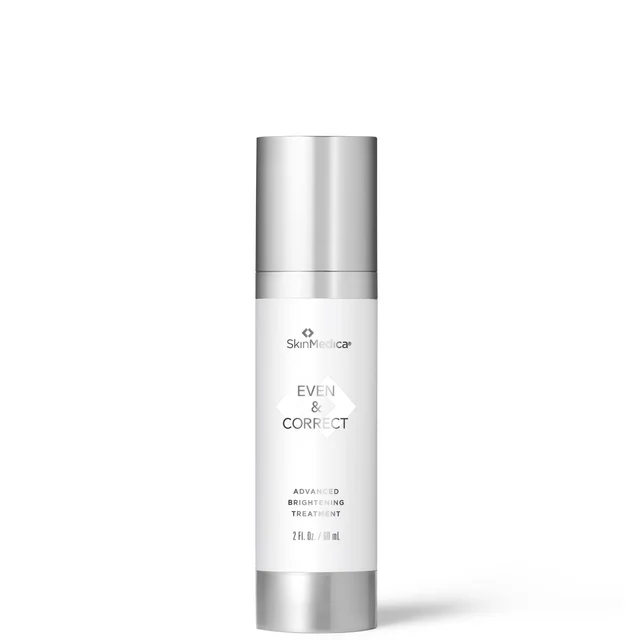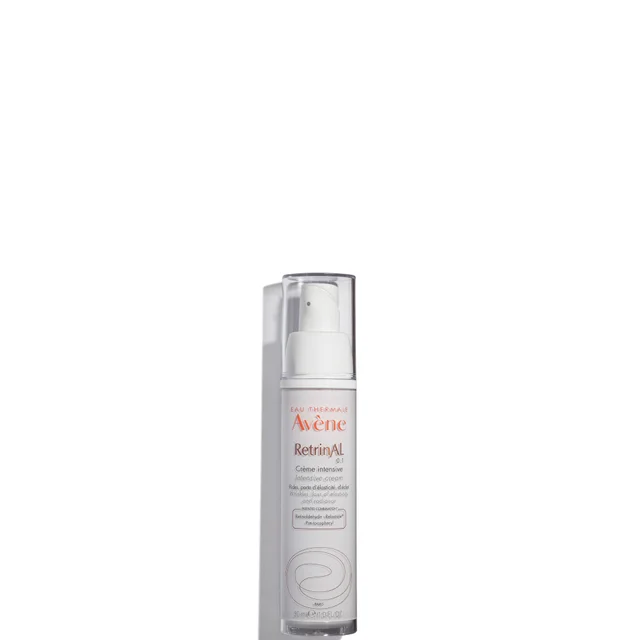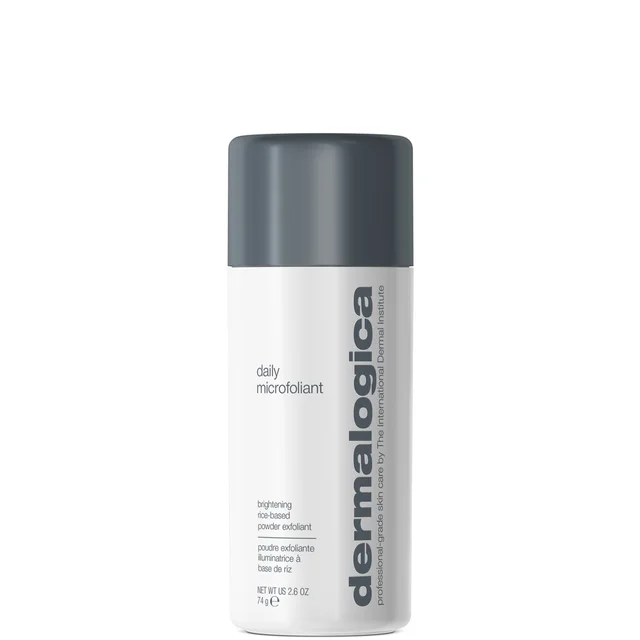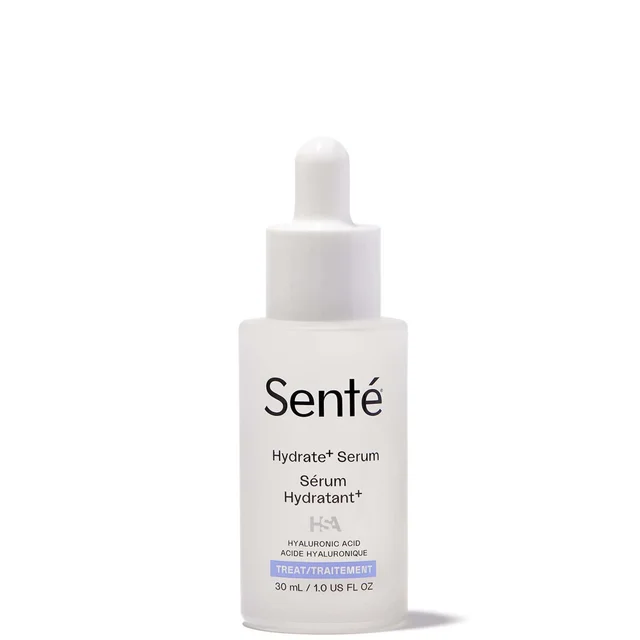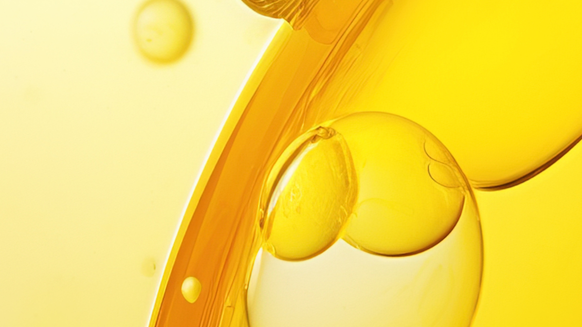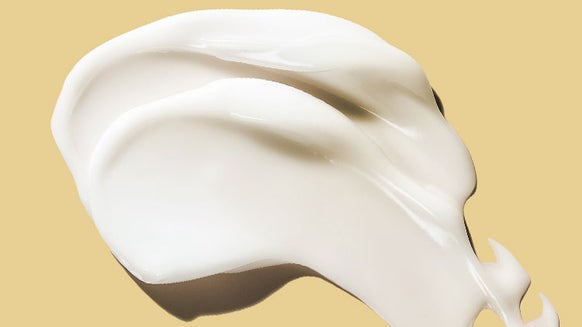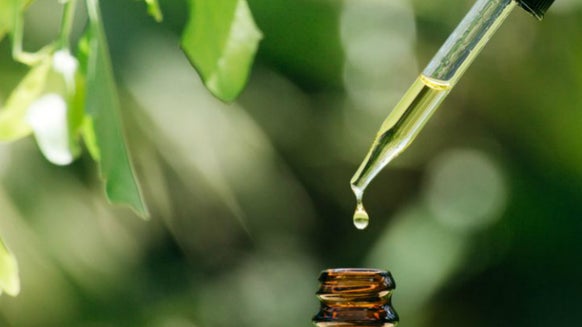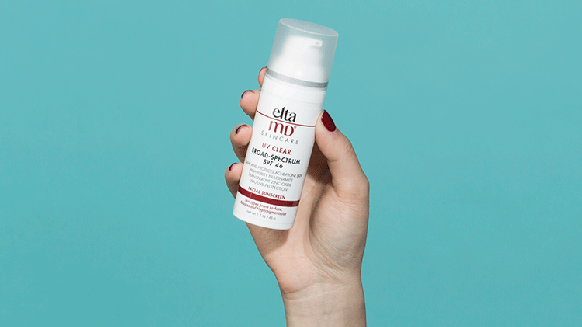10 Derm-Recommended Antioxidants in Skin Care for Healthy, Glowing Skin
If you’ve been in the skincare game long enough, then you know that depending on who you ask, opinions on what works and what doesn’t for your specific skin type or concern can either leave you feeling hopeful and validated or questioning your entire existence. That’s because skincare ingredients are rarely a one-size-fits-all kind of thing, and one person’s holy grail can be another’s nightmare. However, there’s one category of ingredients that has earned the universal nod of skin experts: antioxidants.
Just like sunscreen, antioxidants are so crucial to maintaining skin health that skipping them almost feels like a crime. The good news is, with the wide variety of antioxidants available, you’re sure to find one that works perfectly for your skin’s unique needs. Keep reading to learn more about the benefits of antioxidants in skincare and why they need to have a permanent spot in your everyday routine.
Our Top Picks
Best Vitamin C: Obagi Medical Professional-C Serum 20% Best Vitamin E: EltaMD UV AOX Elements Broad-Spectrum SPF 50 Best Ferulic Acid: Dr Dennis Gross Ferulic Acid + Retinol Brightening Solution Best Resveratrol: SkinCeuticals Resveratrol B E Best Niacinamide: SkinMedica Even and Correct Advanced Brightening Treatment Best Vitamin A/Retinol: Professional Retrinal 0.1 Intensive Cream Best Green Tea Extract: Dermalogica Daily Microfoliant Best Bakuchiol: Medik8 Bakuchiol Peptides Serum Best CoenzymeQ10: DHC CoQ10 Lotion Best Hyaluronic Acid: Sente Hydrate+ Serum
Meet the Expert
- Dr. Connie Yang - Board-certified dermatologist and member of Dermstore's Medical Advisory Board
What Are Antioxidants?
Antioxidants is the umbrella term for compounds with the unique ability to neutralize free radicals that can cause damage to our cells and DNA, including skin cells, says board-certified dermatologist Dr. Connie Yang, a member of Dermstore’s Medical Advisory Board. Free radicals are unstable molecules generated by the body when exposed to environmental aggressors like UV rays, pollution, and toxins. These unpaired and highly reactive molecules lack electrons to keep them settled, causing them to bounce around in search of other molecules that lead to damage in the skin’s collagen and elastin fibers, inflammation, DNA mutations, premature skin aging, and a weakened immune system.
Enter antioxidants. They swoop in to stop free radicals on their tracks and strengthen the skin’s ability to heal itself. “Antioxidants work by neutralizing free radicals, preventing oxidative stress, and boosting skin repair,” explains Dr. Yang. “They neutralize free radicals by donating an electron to stabilize these free radicals, preventing them from harming skin cells.”
What Do Antioxidants Do for the Skin?
When left to roam freely in the body, free radicals can run amok from within and start targeting the body’s DNA, proteins, and lipids, resulting in oxidative stress. Just like how rust degrades metals over time, oxidative stress weakens cells and tissues, threatening not only the skin but the body’s overall health.
Antioxidants keep oxidative stress at bay by ensuring free radicals are always quenched and balanced as well as by countering its effects, including reversing signs of aging, shielding against sun damage, reducing inflammation, evening skin tone, and brightening dark spots and discoloration.
Key Benefits of Antioxidants in Skin Care
Antioxidants are your skin’s prime protector against the harmful effects of free radicals and oxidative stress, but their game-changing impact on skin health doesn’t end there. “Antioxidants have numerous benefits for the skin,” says Dr. Yang. “They can brighten skin and fade dark spots, stimulate collagen production, and strengthen the skin barrier.”
Aside from that, some of the top benefits of antioxidants for the skin are:
- Prevents premature skin aging and photodamage
- Evens skin texture and brightens skin tone
- Soothes inflammation
- Refines discoloration and hyperpigmentation
Improves the look of fine lines and wrinkles - Boosts skin hydration
- Supports cell repair and regeneration
Best Antioxidants for the Skin
While antioxidants primarily function as free radical fighters, some are more specialized than others when targeting other skin concerns like dark spots, signs of aging, and dryness, to name a few. Below are ten of the best antioxidants for the skin.
1. Vitamin C
A superstar when it comes to evening the complexion, Dr. Yang says vitamin C is “great for dark spots and brightening the skin.” Not to mention, it helps collagen production, protects against environmental damage, and imparts a natural glow to the skin.
Featured Product: Obagi Medical Professional-C Serum 20%
Infused with concentrated l-ascorbic acid, this serum addresses discoloration and pigmentation issues, improves elasticity, and protects against UV damage. It works by going deep into the skin to stimulate collagen and elastin fibers, and with the help of hyaluronic acid, reveals a brighter, more radiant visage.
Key Ingredients: L-ascorbic Acid (Vitamin C), Hyaluronic Acid
Skin Type: All Skin Types
Skin Benefits: Provides antioxidant protection, brightens hyperpigmentation, aids in hydration'
Beauty Insider Tip: Because of its highly potent formula, new users might feel a slight tingling that gradually disappears as your skin gets used to the product.
2. Vitamin E
On its own, vitamin E is a super soothing antioxidant that “helps strengthen the skin barrier and promote skin hydration,” says Dr. Yang. But when used in combination with vitamin C, the synergistic duo has been shown to enhance the skin’s defenses against pollution, UV rays, and other environmental stressors.
Featured Product: EltaMD UV AOX Elements Broad-Spectrum SPF 50
When it comes to protecting the skin from UV damage, vitamins C and E are pretty tough to beat. So, it only makes sense to combine these two super antioxidants in one mineral sunscreen formula that not only provides complete protection from the sun and blue light but also comes with plenty of anti-aging and hydration-boosting perks.
Key Ingredients: 13.5% Zinc Oxide, 4.4% Titanium Dioxide, Vitamins C and E, Iron Oxide, Hyaluronic Acid, Bisabolol, Ginger Root
Skin Type: All Skin Types
Skin Benefits: Reflects and scatters UVA and UVB rays, blocks HEV or blue light, counters free radicals, enhances hydration, soothes redness
Beauty Insider Tip: This enhanced formula boasts of 39 percent more blue light protection than its original formulation.
3. Ferulic Acid
Ferulic acid is a powerhouse antioxidant that enhances the stability and effectiveness of other antioxidants like vitamins C and E, says Dr. Yang. It also protects the skin from sun damage by reversing its effects and absorbing UV rays.
Featured Product: Dr Dennis Gross Ferulic Acid + Retinol Brightening Solution
Infused with two of the most hardworking antioxidants, ferulic acid and retinol, this clinical-strength serum doesn’t hold back when it comes to neutralizing free radicals and delivering anti-aging and brightening benefits to the skin.
Key Ingredients: Ferulic Acid, Retinol, Licorice Root Extract
Skin Type: All Skin Types
Skin Benefits: Improves firmness, tone, and texture; minimizes fine lines and wrinkles; prevents collagen breakdown; and brightens and restores the skin’s natural radiance
Beauty Insider Tip: Morning and night, apply this serum under your moisturizer and sunscreen.
4. Resveratrol
This antioxidant gives us even more reasons to love wine. Often found in red grapes, berries, and yes, red wine, resveratrol is a solid choice for protecting the skin against UV damage and pollution, reducing hyperpigmentation, calming inflammation, and minimizing fine lines and wrinkles.
Featured Product: SkinCeuticals Resveratrol B E
This nighttime skin wonder features a unique, first-of-its-kind formula that helps to stabilize free radicals while enhancing the skin’s natural antioxidant defenses. The result? A super potent serum that transforms skin overnight.
Key Ingredients: 1% Resveratrol, 0.5 % Baicalin, 1% Alpha Tocopherol
Skin Type: All Skin Types
Skin Benefits: Refines signs of aging; noticeably improves skin radiance, elasticity, and density; counters free radical damage
Beauty Insider Tip: This serum is clinically proven to increase skin firmness and radiance by up to 10 percent and smoothness by 18 percent.
5. Niacinamide
As an ingredient, niacinamide tends to be more low-key, but it’s no less hardworking as its buzzier counterparts. “In addition to neutralizing free radicals, it helps with skin barrier support and reduces redness and inflammation,” says Dr. Yang.
Featured Product: SkinMedica Even and Correct Advanced Brightening Treatment
Powered by niacinamide and a super concentrated antioxidant blend, this high-performing serum delivers intense benefits that target stubborn discoloration and pigmentation concerns without the risk of unwanted side effects that often come with workhorse actives.
Key Ingredients: Niacinamide, Lotus Seed Extract, Tranexamic Acid, Vitis Flower Stem Cell Extract
Skin Type: All Skin Types
Skin Benefits: Corrects the appearance of uneven skin tone, hyperpigmentation, and dark spots
Beauty Insider Tip: This formula is retinol- and hydroquinone-free, making it a safe bet for even the most sensitive skin.
6. Vitamin A/Retinol
The rock star of all skincare rock stars, vitamin A—in the form of retinoids—boasts of unmatched anti-aging benefits. It works by stimulating the production of collagen and maintaining the integrity of the skin’s elastin fibers, resulting in firmer and smoother skin, reduced fine lines and wrinkles, and more even tone and texture. Not only that—retinoids are also great in addressing acne. All thanks to its ability to regulate oil production and promote faster cell turnover that helps with post-acne scarring and pigmentation.
Featured Product: Professional Retrinal 0.1 Intensive Cream
Featuring a potent and advanced dose of vitamin A, this moisturizer noticeably enhances the skin’s appearance by improving the look of fine lines, wrinkles, uneven tone, sagging, and other visible signs of aging. Plus, it’s packed with antioxidants that soothe and protect the skin from UV damage.
Key Ingredients: Retinaldehyde, Vitamin E, Patented Pro-Elastin Peptide
Skin Type: All Skin Types
Skin Benefits: Smooths and reduces deep wrinkles; plumps, firms, and brightens skin; provides antioxidant protection against free radicals
Beauty Insider Tip: Use a small amount on the face and neck nightly or as advised by your dermatologist.
7. Green Tea Extract
Green tea is known for being rich in polyphenols, particularly EGCG, which have a long list of skin and health benefits. Aside from keeping free radicals in check, polyphenols are widely used in skincare because of their anti-inflammatory and acne-fighting properties, anti-aging and brightening effects, and soothing and hydrating benefits.
Featured Product: Dermalogica Daily Microfoliant
Gentle enough for daily use, this exfoliant is a standout in every way. All thanks to its unique rice-based enzyme packed with micro-exfoliants that instantly smooth and brighten the skin—minus the irritation. It also features a nourishing and skin-renewing blend of exfoliating acids and green tea-headlined antioxidants to boost skin cell regeneration and brighten the skin.
Key Ingredients: Rice Actives, Alpha Hydroxy Acids, Green Tea, Ginkgo, Colloidal Oatmeal, Bearberrry, Grapefruit, and Licorice
Skin Type: All Skin Types
Skin Benefits: Gently smooths and polishes skin texture; unclogs pores and clears impacted follicles; prevents breakouts; promotes faster cell regeneration; evens and brightens complexion
Beauty Insider Tip: This exfoliant comes in a rice-based powder formula that activates upon contact with water.
8. Bakuchiol
As a gentler and plant-based alternative to retinol, bakuchiol mimics the effects of retinoids on the skin but without the unwanted reactions that sometimes come with using such a potent active. That means you get to revel in its tone-improving, skin-smoothing, and wrinkle-banishing benefits without peeling, dryness, or irritation.
Featured Product: Medik8 Bakuchiol Peptides Serum
Just because you and your skin can’t seem to agree on where you stand with retinol doesn’t mean you can’t reap its superb anti-aging benefits. With plant-based retinol alternative bakuchiol at the helm, this serum targets visible signs of aging as well as texture and discoloration concerns.
Key Ingredients: Bakuchiol Peptides, Cica Extract
Skin Type: All Skin Types
Skin Benefits: Softens visible signs of aging; brightens complexion; safe for all skin types and for pregnant or nursing women
Beauty Insider Tip: Unlike retinol, bakuchiol can be safely used by pregnant or nursing women.
9. CoenzymeQ10
This antioxidant is naturally produced by the body and plays a role in producing energy that powers up cells and enables them to perform crucial functions like repair and regeneration. Plus, according to Dr. Yang, coenzymeQ10 or coQ10 “protects against UV damage and improves elasticity.”
Featured Product: DHC CoQ10 Lotion
From Japanese beauty authority DHC, this skin-protecting toner features coenzymeQ10 as its star ingredient. Its fast-absorbing and gentle formula is designed to promote a youthful, more revitalized complexion by protecting the skin against environmental stress and flooding it with nourishing and hydrating antioxidants.
Key Ingredients: CoenzymeQ10, Organic Olive Oil, Sodium Hyaluronate, Vitamin E, AHAs
Skin Type: All Skin Types
Skin Benefits: Fights free radicals and environmental stress; improves skin barrier; preps skin for better product absorption; increases hydration; imparts a more youthful, radiant complexion
Beauty Insider Tip: In Japanese beauty, lotions are more like toners that soothe and deeply hydrate the skin. They’re an essential step if you want to achieve dewy-looking skin.
10. Hyaluronic Acid
Technically, hyaluronic acid isn’t an antioxidant, but its topnotch hydration benefits are the perfect go-with for antioxidants considering their overlapping impact on the skin. Like antioxidants, hyaluronic acid helps fight the good fight against free radicals by keeping the skin well-hydrated. In doing so, the skin barrier becomes stronger and more resilient against environmental damage and inflammation.
Featured Product: Sente Hydrate+ Serum
With its hydration-obsessed formula, which combines hyaluronic acid with the brand’s patented Heparan Sulfate Analog (HSA), this serum is a top choice for those looking for a deeper and more intense moisture boost. Offering multi-level, long-lasting hydration, it leaves the skin extra supple, refreshed, and nourished while improving barrier function and soothing inflammation.
Key Ingredients: Hyaluronic Acid, Heparan Sulfate Analog
Skin Type: All Skin Types
Skin Benefits: Delivers instant and long-lasting hydration to all layers of the skin; soothes and calms irritation and inflammation; supports barrier function
Beauty Insider Tip: This hydration wonder is the first and only hyaluronic acid serum powered by HSA.
Related Article: A Definitive Guide to Hyaluronic Acid, According to Beauty Experts
How to Use Antioxidants in Your Skin Care Routine
If you have oily or acne-prone skin, Dr. Yang recommends niacinamide for its sebum-regulating and pore-refining properties as well as vitamin C to help with blemishes often left behind by acne. The same goes for those with sensitive skin as they can benefit from niacinamide’s soothing effects and gentler forms of vitamin C.
On the other hand, those dealing with hyperpigmentation, dark spots, and discoloration “should look for ingredients that target melanin production and promote brightening—vitamin C, niacinamide, alpha-arbutin, and resveratrol,” adds Dr. Yang.
If your main concern is signs of aging—fine lines and wrinkles, sagging, loss of firmness—then “opt for antioxidants that boost collagen, repair damage, and improve elasticity,” suggests Dr. Yang. These include vitamin C, vitamin E, ferulic acid, resveratrol, and vitamin A or retinoids.
Some antioxidants deliver the best results when used together (such as vitamins C and e), whether through layering or as a blend in the same formula. Take note, however, that while mixing antioxidants allows you to take advantage of their synergistic effects, too much can also overwhelm the skin. To make sure you don’t overload your skin, you’ll want to introduce one ingredient at a time to your skin (and no more than three at the same time) or alternate products and ingredients on different days.
FAQ
Which Ingredients Should You Avoid Pairing with Antioxidants?
While many antioxidants are perfectly safe to use with other ingredients like hyaluronic acid and peptides, certain actives can lessen or cancel out their benefits when used together. “Avoid using benzoyl peroxide with your antioxidants as it can oxidize the antioxidants, reducing their effectiveness,” explains Dr. Yang. “Some antioxidants like vitamin C can be irritating and using them with retinoids or AHAs/BHAs can increase the risk of irritation.” To prevent this, Dr. Yang recommends splitting up the actives by using vitamin C in the morning and saving exfoliants or retinoids for nighttime use.
The Bottom Line
The Bottom Line As a skincare ingredient, antioxidants are your skin’s top defenders against oxidative stress. They work by quenching and balancing free radicals that the body produces when it’s exposed to UV rays, pollution, stress, and other external aggressors. They’re known to improve tone and texture, brighten dark spots, discoloration, and hyperpigmentation, enhance hydration, soothe acne and inflammation, and slow down signs of aging. Although all antioxidants have the same main job, some can have a more targeted effect on specific skin concerns and types. Among the best antioxidants in skincare are vitamins C and E, resveratrol, niacinamide, bakuchiol, vitamin A or retinol, green tea, ferulic acid, and coenzymeQ10.

Janeca Racho is a Journalism graduate with over 15 years of writing experience. After getting her start in public relations and advertising, she made the switch to freelance writing and began working for various lifestyle, fashion, and travel brands. Her love for all things skincare has led her to beauty reporting and research for the last ten years. Writing for several hair and beauty blogs, she reports on anti-aging staples, trending brands and products, must-have ingredients, and health and wellness.
